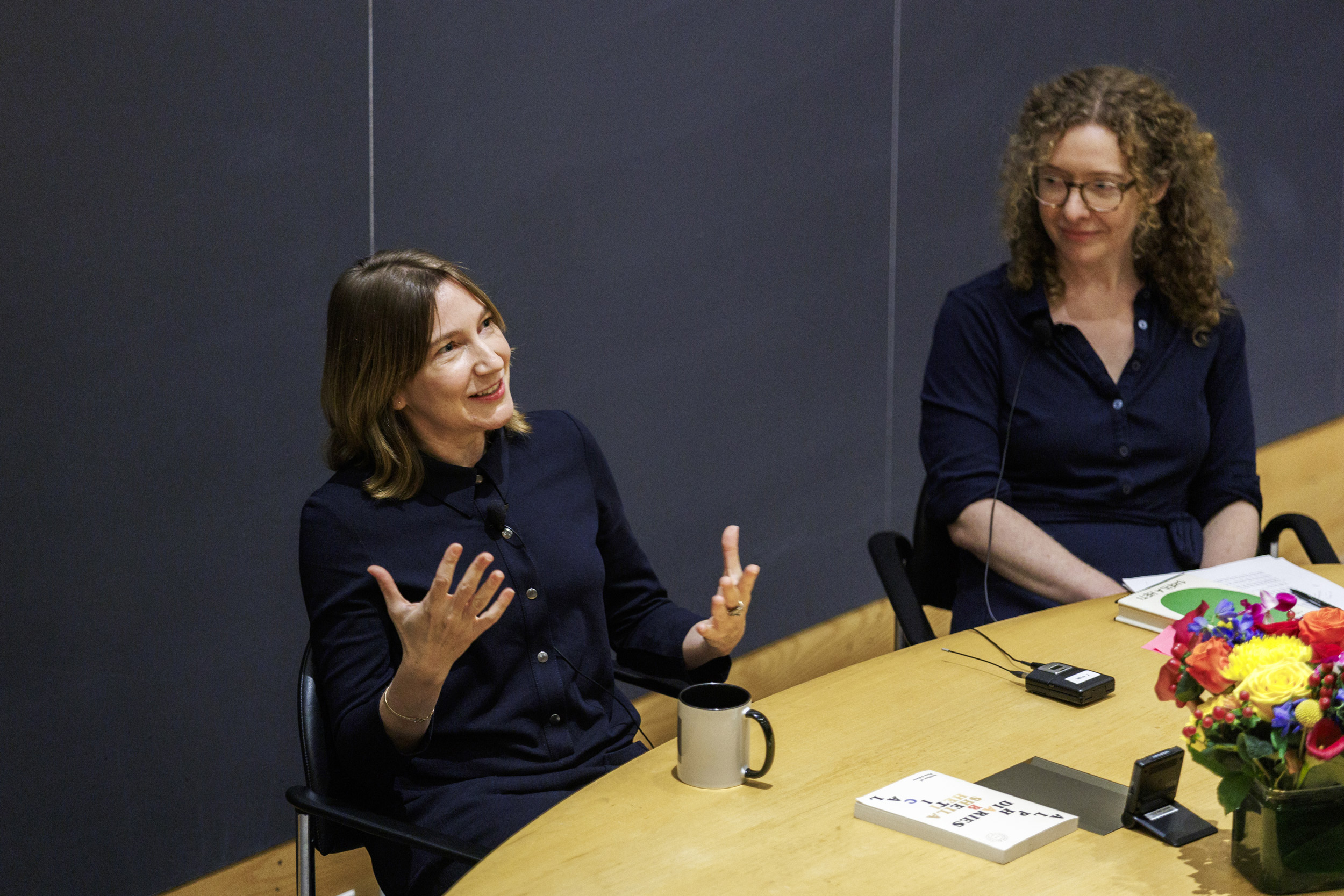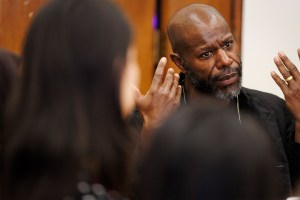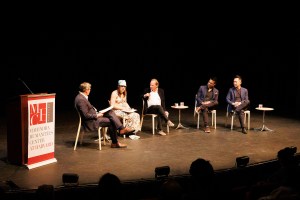
Writer Sheila Heti (left) and humanities Professor Beth Blum.
Stephanie Mitchell/Harvard Staff Photographer
How alphabetizing diary helped Sheila Heti organize thoughts
Literary boundary-pusher on her new memoir, conversation with AI chatbot that became short story
For Canadian writer Sheila Heti, alphabetizing her diaries was both a form of procrastination and way of reclaiming her identity.
Heti, who is known for blending forms in her work, began the project after the publication of her acclaimed 2012 novel, “How Should a Person Be?”, a fictionalized account of her own life. She found arranging the sentences of a decade’s worth of journal entries in an Excel spreadsheet to be a meditative way to get back in touch with her real self.
“You can misremember your life so easily that I would start to think the book was my life,” Heti said at a recent Writers Speak event hosted by the Mahindra Humanities Center. “I wanted to look at my diaries over the last seven or eight years … and see — who actually was I?”
The diary exercise has also yielded a new memoir, “Alphabetical Diaries,” which comes out in February. Heti, who has written 11 books including “Pure Color” (2022) and “Motherhood” (2018), talked with Beth Blum, Harris K. Weston Associate Professor of the Humanities, about experimentation, living in Toronto, and collaborating with an AI chatbot.
“Each new book is totally surprising, and yet so distinctly infused with your voice and your spirit and your sensibility,” Blum said.
Heti shared one recent experiment, a yearlong writing collaboration with a customizable AI chatbot named Alice. Heti began conversing with Alice in the summer of 2022, and Heti’s probing questions resulted in the short story “According to Alice,” written from the perspective of the chatbot, which was published in The New Yorker last month.
“The reason I started writing with Alice was because I was really sick of my own sentences and my own thoughts and my own words and my own mind,” said Heti, noting that while she sometimes felt guilty for spending so much time talking to AI, she ultimately decided to lean into it. “The Alice sentences were completely new and delightful and interesting.”
“It’s efficient to edit. It’s really a drag to generate. I think that there’s a kind of pleasure in having text already there and not having to make it.”
Heti says novels are her favorite form of writing because they allow her the freedom to experiment. But she enjoys editing more than writing, most of the time. She described the feeling of relief she experiences after getting 500,000 words down on paper, so she can then turn toward shaping them.
“It’s efficient to edit. It’s really a drag to generate,” Heti said. “I think that there’s a kind of pleasure in having text already there and not having to make it.”
In her early 20s, Heti said, she wrestled with the question of whether she could be a successful writer while living in Toronto or needed to move to New York — a question that appears in several of her books. She now considers staying to be one of the best decisions she’s ever made, both for the free healthcare and the creative possibilities.
“You don’t want every book to have the texture of New York,” Heti said. “You want books to come from different places, and different places have different values. What are the values of Toronto? What are the colors of Toronto?”
Heti, whose work often includes themes of spirituality and religion, told the audience that the process of writing feels, in many ways, bigger than herself.
“I experience it as collaboration with this force that I don’t know what it is,” she said. “I feel like I’m always listening to the world and looking for signs in the world in what I should be writing and what I should be paying attention to.”




